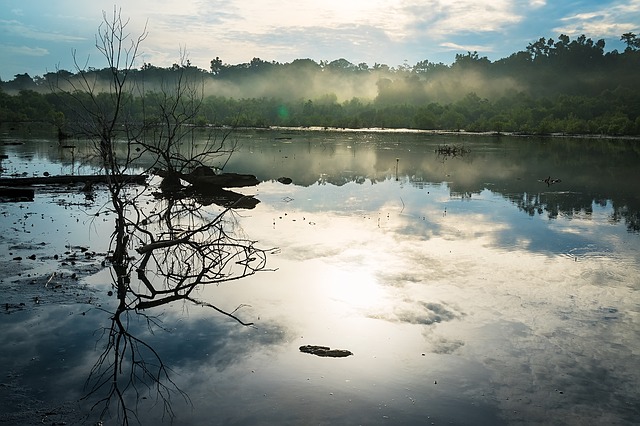
This event has passed.

Seminar with Joachim Jansen: Carbon trace gas dynamics in subarctic lakes
September 29, 2020 @ 11:00 - 12:00
Abstract:
Northern lakes are important sources of radiatively active trace gases carbon dioxide and methane to the atmosphere. Emissions are expected to increase as the climate continues to warm, but temperature-dependent processes that partially govern the flux remain poorly understood. This talk focuses on three small, post-glacial lakes situated within the Stordalen Mire, a subarctic peatland underlain by thawing permafrost in northern Sweden. A unique, multiyear dataset is used to assess the temperature dynamics of different ice-free emission pathways – ebullition, turbulence-driven diffusion and release from storage – on short and long timescales. On seasonal to interannual timescales, emissions are robust functions of thermal energy input. Short-term storage-and-release cycles are governed by kinetic drivers, such as turbulence fueled by wind shear and, to a lesser extent, by thermal convection. Temperature proxies of the flux can help assess current and future emissions from lakes, but local context, such as carbon gas inputs from streams and episodic degassing of shallow lakes, can modulate flux-temperature relationships. Field observations therefore remain essential for the development and calibration of models, and to predict future emissions.
Joachim Jansen is a candidate for the Icelab postdoctoral fellowship for the project ‘Climate impact on the inland water carbon cycle’ led by Professors Jan Karlsson and Martin Rosvall. He recently received his PhD from the Department of Geological Sciences at Stockholm University. Joachim will visit Icelab and give a seminar entitled ‘Carbon trace gas dynamics in subarctic lakes‘ at Icelab and also broadcast through Zoom. All are welcome to attend through Zoom!
Leyden Fernandez will also be giving a talk in Icelab at the same Zoom link at 1pm: Adding value through bioinformatics. Everyone is welcome to log in to this talk as well!
Image by Marcelino James from Pixabay
